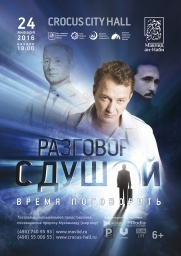A growing number of Russian television programmes are now
raising topics of food quality calling for consumers to be more careful about
choosing what products they buy and eat.
For Muslims meat products are of sufficient quality if they
are halal. Such products have recently gained great popularity in Russia to the
point of being preferred by many - by far not just Muslims. Surveys show that
religion is not behind consumer's choice in more than half of the cases with
many people buying halal meat simply because they think it's good. But when a
meatamn assures you his products are halal, is it really so? And how can you
check if it's true or not? For ten year now the International Center for Halal
Standartization and Certification under the Muftis Council of Russia has been
carrying out works to verify the confomity of meat products to the Halal
standards.
This verification process is based on internationally adopted
Halal standards. Most meat producers have certificates that confirm its quality.
Almost everyone know brands such as «Halal ash», «Ekol», «Ekoprod» which are the
biggest producers of halal products in Russia's central region. Tsaritsyno's
halal sausages and Elinar - Broiler's chickens are also popular.
Halal product sellers, as a rule, have production
certificates, but it is preferable that butcher's shops or cafes that have halal
meat on the menu should be certified as well. Such certification means that
cleanness of working spaces, premises and storage area also confirm to the
standard. Everything seems to be going just well: the halal market is growing,
producers are being certified, consumers increasingly demand certificates from
new sellers.
Recently, appeals from consumers to the Economic Department
of the Russia Muftis Council became more frequent. They claim they don't quite
understand those certificates sellers show them. Lets consider several examples.
In one of well-known public catering networks
you can see certificate of "Halal" of Russia Muftis Council in frame right on
entrance to the self-service area. All is well on the first sight. Seeing this
sign of attention from the food service, trusting consumer will get happy for
the domestic halal industry and will set about choosing meal. But if you get a
grasp of this certificate, you will discover a number of violations. Firstly,
name of the company, in whose name certificate was issued, doesn't correspond to
establishment's name in which you are. Following the principle of best
supposition (husnu zann), competent consumer will suppose that certificate was
given to raw materials producer, from whom public catering establishment is
buying it up. In that case it is up to quess if this connection exists. But
questions do not end up with this. Secondly, the term of certificate expired in
2011, while 2012 is coming to an end. And thirdly, as most knowledgeable
consumer would clear up - supplier, whose name is written on certificate, didn't
have any relation to the network of public catering.
Than question arises: "Why?". If public catering network is
well-known and respected, if they reckon they have a right to do without Halal
certificate, than why to place certificate that doesn't correspond to the facts?
Evidently, issues arise among consumers still. And if it occurs, than there is a
requirement of certification. But certificate should be real, in other way it's
not clear who, whom and why try to mislead?
Second example. In one of oriental restaurants certificate is
shown on demand of a visitor. Indeed, certificate confirms accordance with halal
standards. But it is difficult to understand for what exactly certificate was
issued. If visitor knows English , he/she can investigate that it's about beef.
But certificate doesn't have date and period of validity.
Strictly, you can't see any connection between Australian Certification Centre
that issued the document, black-and-white copy of which was offered by
administrator, and restaurant, where you are. Does restaurateur really rely on
sleeping guard of consumer again?
Third example. It's also about well-known and popular restaurant chain
of Uzbek cuisine. They don't show certificate, just referring to the words of
chef about meal is halal. However, as we found out from talking with manager of
quality control, there is no guarantee that buying halal veal once, they do the
same in next period, when another supplier will offer more profitable
conditions. But meal won't be halal this time.
Dolefully, many well-known and loved shops and public catering networks can
be considered to the listed companies.
In order to not disappoint consumers completely, the author doesn't mention
the names of these organizations, with hope that such violations will be fixed
at an early date. And consumers will be more considerate towards certificates
they are shown. And we hope they won't be lazy once again to visit the site or
make a call to International Center of standardization and certification "Halal"
of Russia Muftis Council, or to Centre's Regional representative "Halal", in
order to consult the list of certified companies.


 Mawlid an-Nabi in Crocus City Hall
Mawlid an-Nabi in Crocus City Hall
